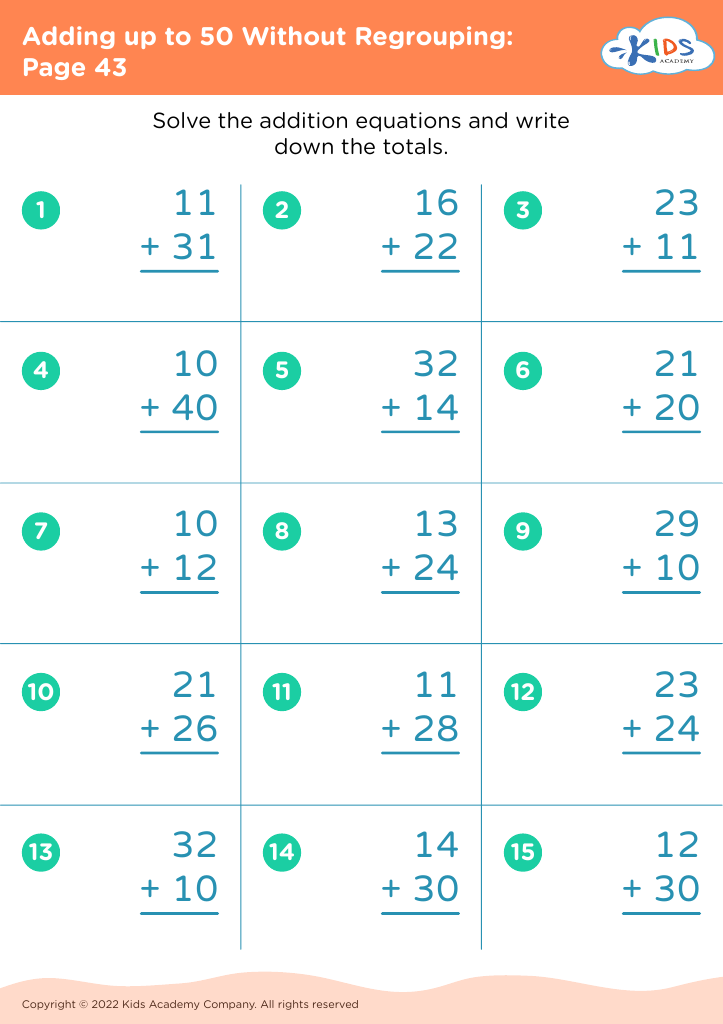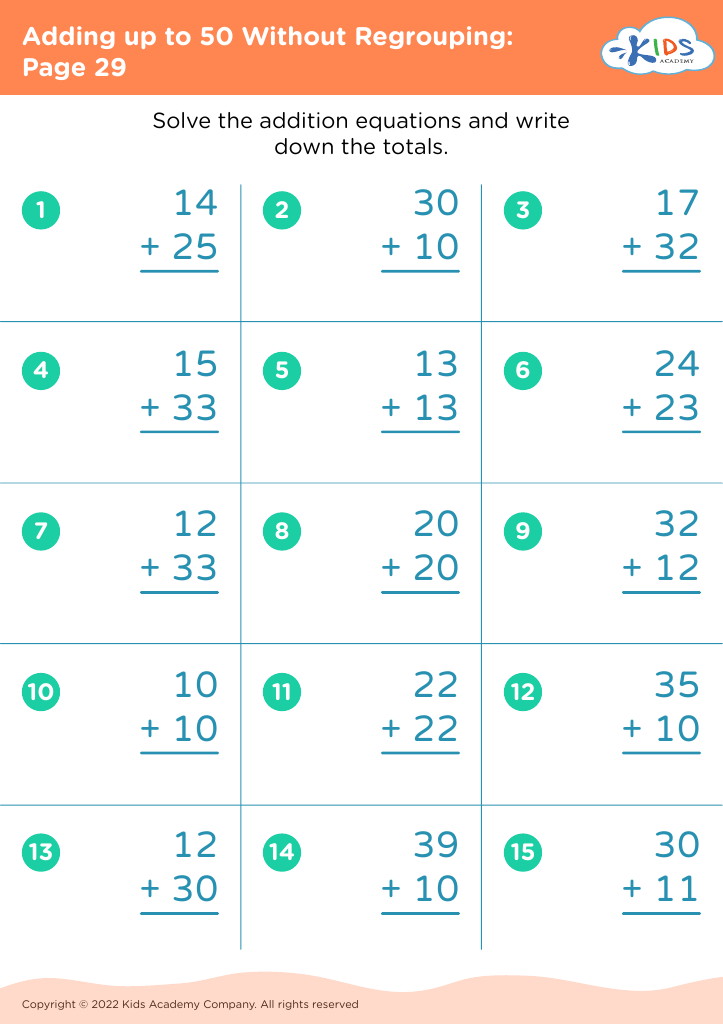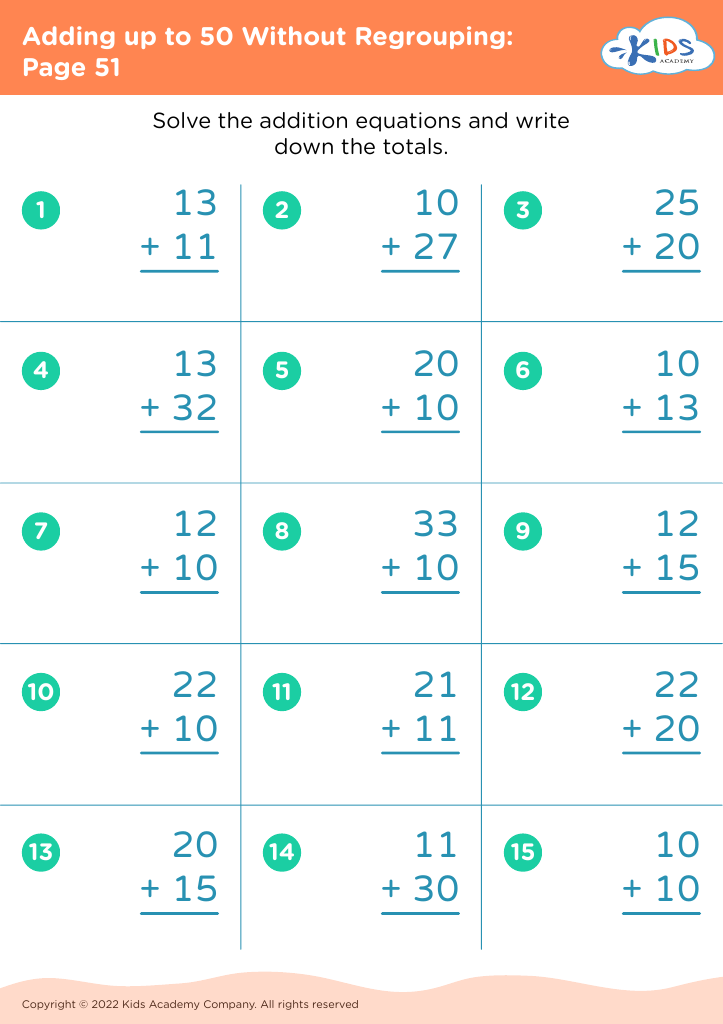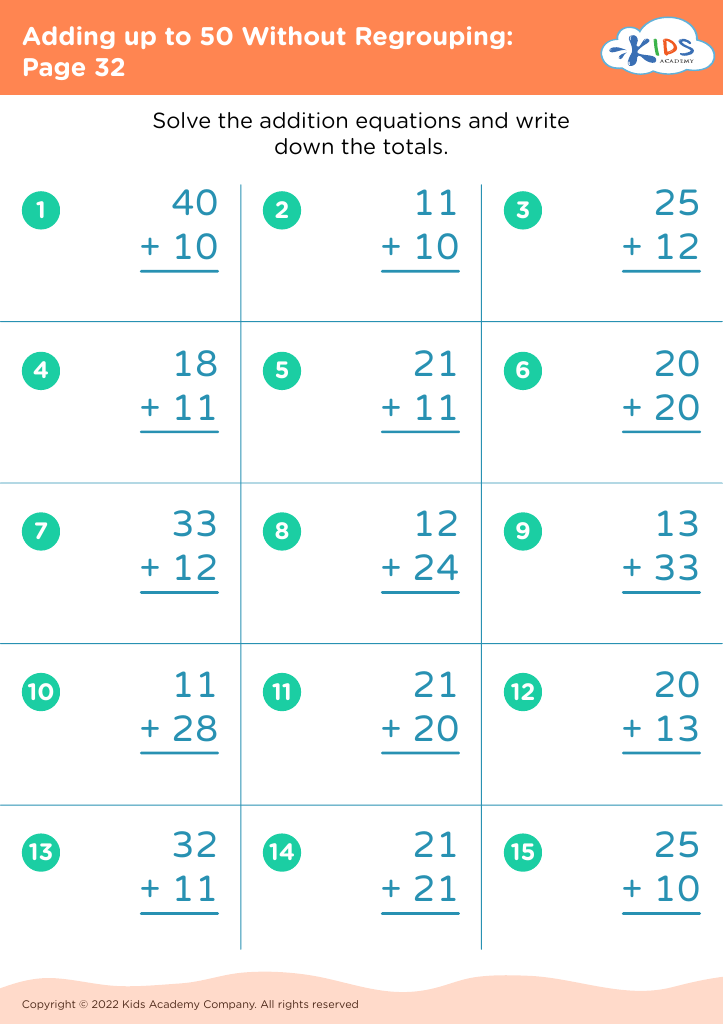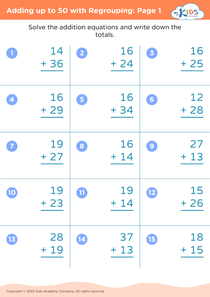Identifying shapes Adding up to 50 Without Regrouping Worksheets for 7-Year-Olds
6 filtered results
-
From - To
Discover our engaging "Identifying Shapes Adding Up to 50 Without Regrouping Worksheets" tailored for 7-year-olds! These interactive worksheets combine essential math skills with shape recognition, allowing young learners to practice addition skills while identifying different geometric shapes. Children will enjoy fun illustrations and stimulating activities designed to reinforce their understanding of numbers and shapes simultaneously. No regrouping is required, making it perfect for building confidence and fluency in addition. These worksheets foster critical early math skills, ensuring your child develops a strong foundation. Ideal for classroom or home use, these resources promote learning through play and exploration!
Identifying shapes and adding up to 50 without regrouping are foundational skills for 7-year-olds that support their overall cognitive development and future math success. Recognizing shapes enhances critical thinking and spatial awareness. It lays the groundwork for more complex geometric concepts and helps children make sense of the world around them. For example, understanding shapes is crucial in various fields such as art, architecture, and engineering.
Adding up to 50 without regrouping is equally significant as it builds strong mental math skills. It encourages children to develop strategies for addition, helping them to work efficiently and confidently with numbers. Mastering this skill promotes numerical fluency, making it easier for children to tackle more advanced mathematical concepts later on, such as comparison, measurement, and problem-solving.
Furthermore, these skills inspire persistence and resilience; as children encounter challenges in identification or computation, they learn to overcome obstacles, enhancing their growth mindset. Parents and teachers play a crucial role in fostering these abilities by providing supportive learning environments and engaging activities, ultimately contributing to children’s academic success and instilling a positive attitude towards mathematics in general. Prioritizing these foundational skills equips young learners for future educational endeavors.

